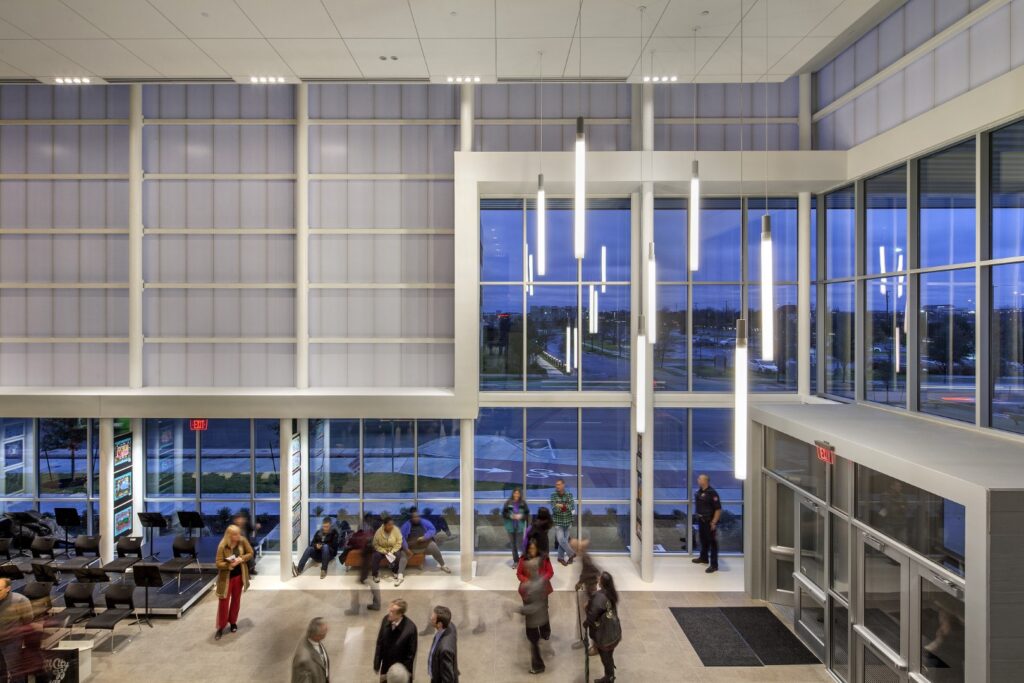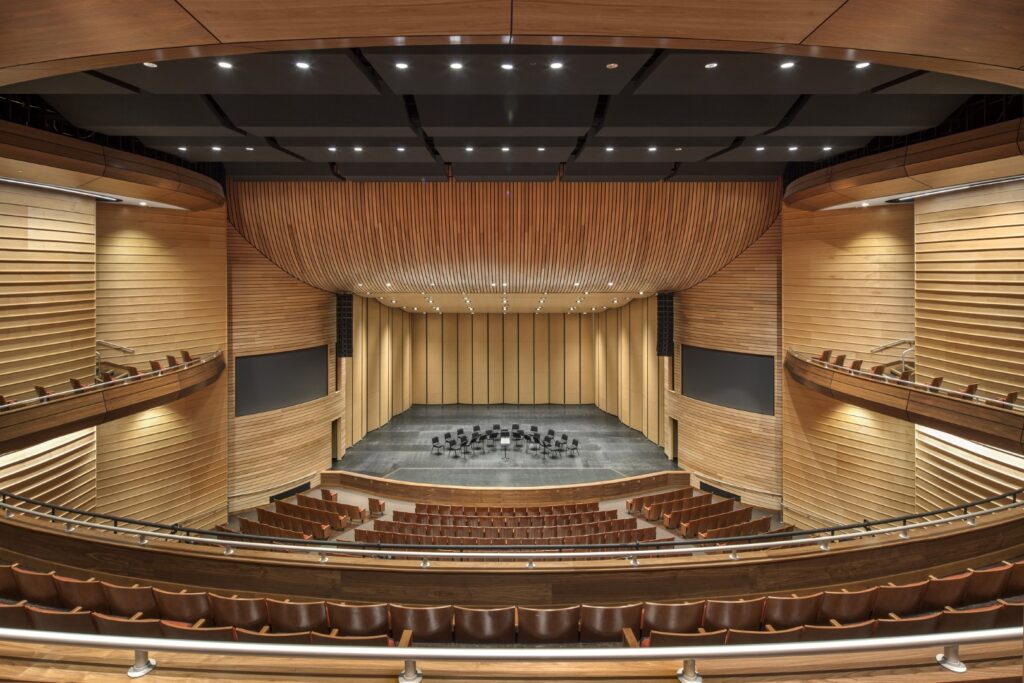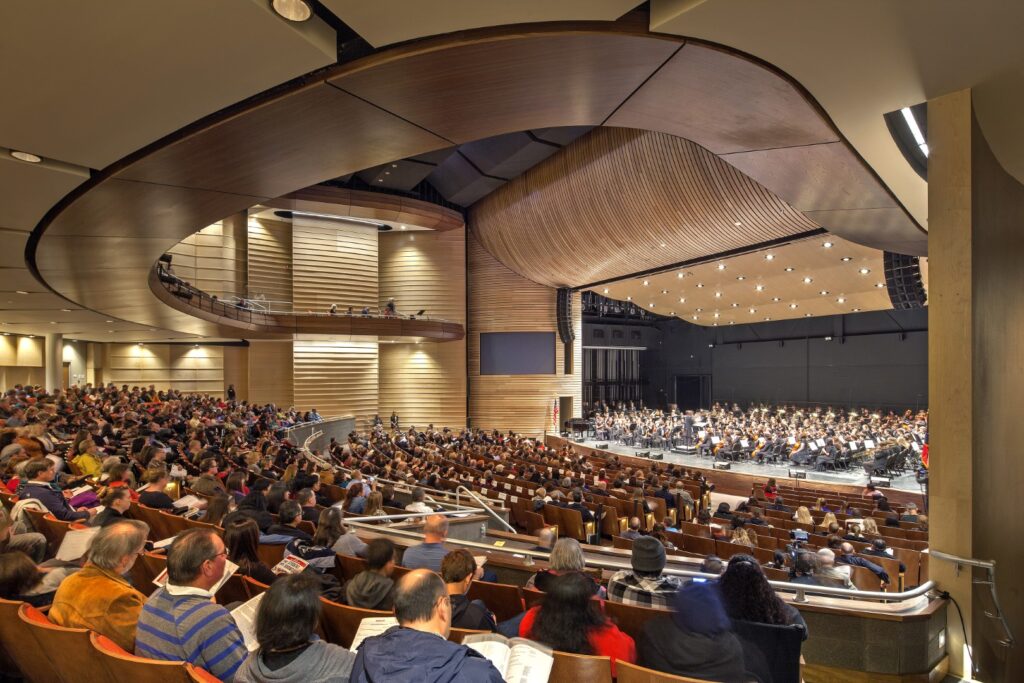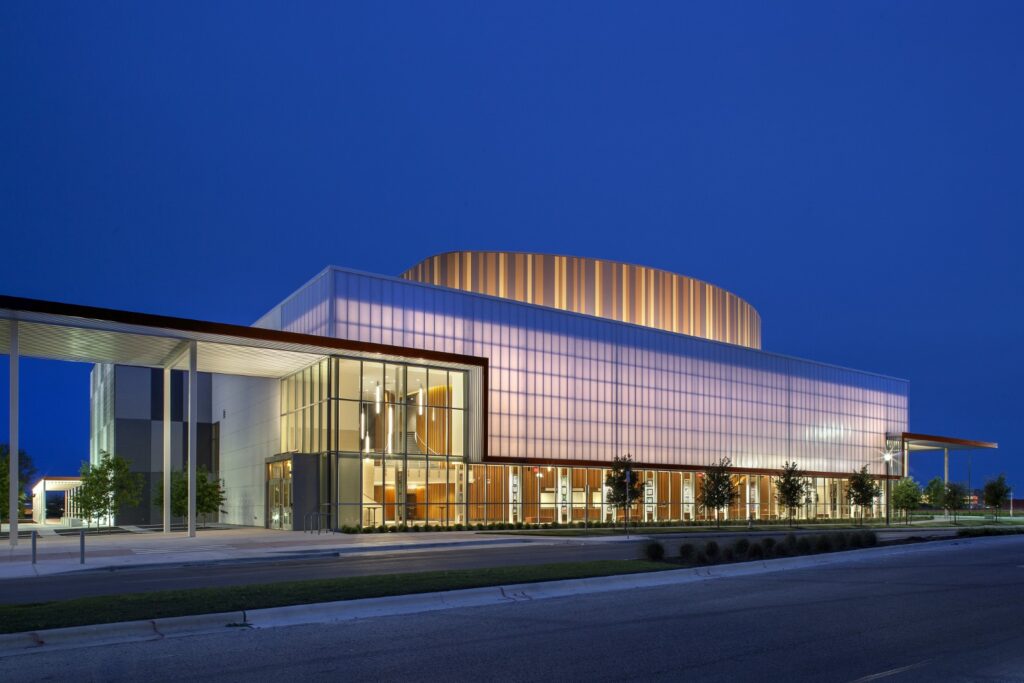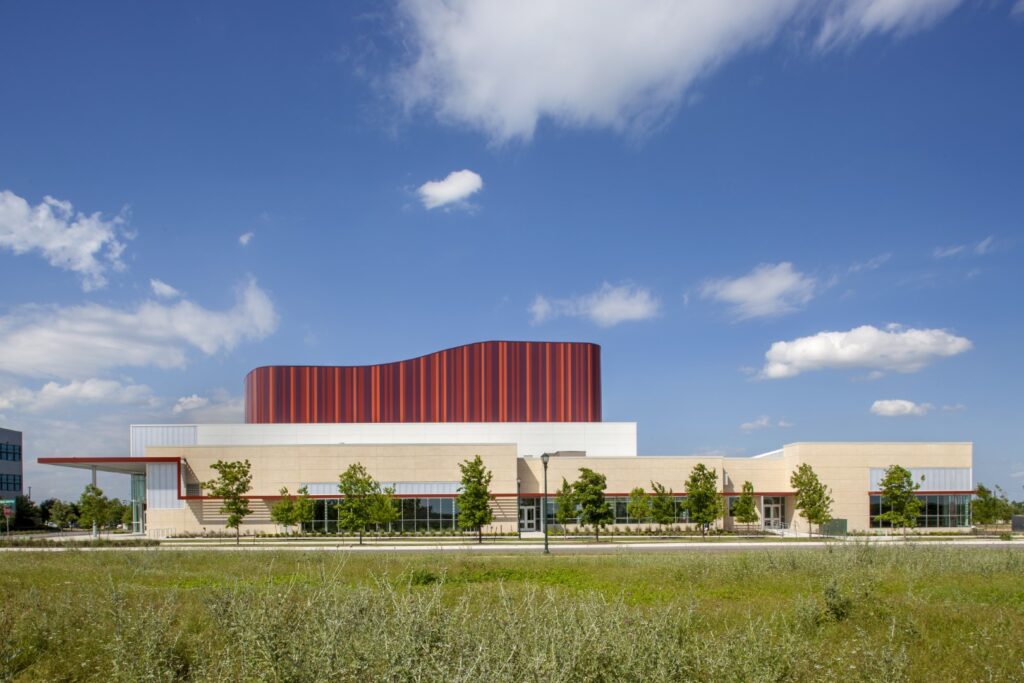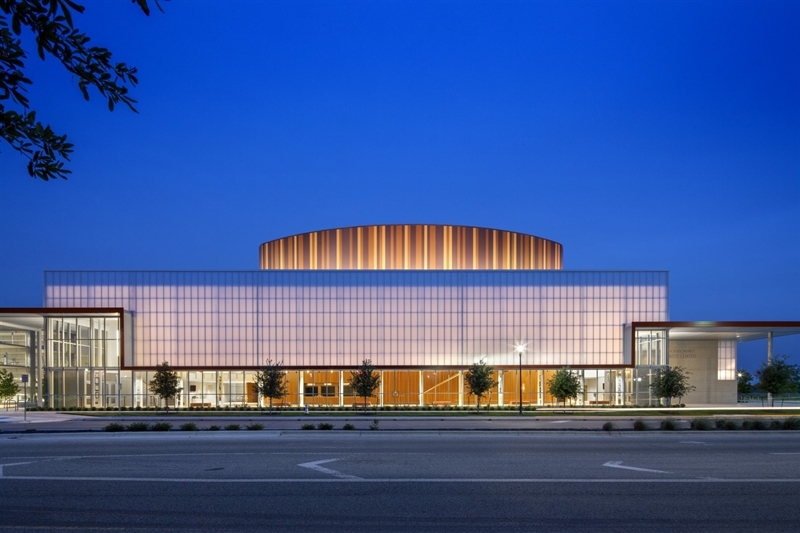Architects: Miró Rivera Architects
Area: 6530 m²
Country: Austin, USA
Year: 2014
Text description and images are provided by the architects.
The AISD Performing Arts Center (PAC) is the first purpose-built, district-wide Fine Arts facility in the 134-year history of the Austin Independent School District. Designed by Miró Rivera Architects and Pfluger Architects, the state-of-the-art serves more than 84,000 students from kindergarten through 12th grade, exemplifying the community and district’s commitment to making Fine Arts education available to all.
As the school district’s foremost arts education facility, the PAC provides flexible space for a variety of activities including: orchestra, band, choir, theater, dance, visual arts exhibitions, and professional development. The center promotes student and personal development, not only providing an exceptional Fine Arts performance and training venue, but also giving students opportunities for training and employment through assisting with logistics, media, and technical theater operations.
The Performing Arts Center is centrally located in the Mueller Development, a mixed-use redevelopment of the Robert Mueller Municipal Airport, which closed in 1999 and left behind a 700-acre parcel of land in central Austin. The master plan envisions a sustainable community, applying the principles of New Urbanism to foster architectural, economic, and social diversity.
Just three miles from downtown, the sustainable development is at the geographical center of the students of the Austin Independent School District, providing a perfect opportunity for the Performing Arts Center to be situated at the heart of a vibrant, pedestrian-oriented neighborhood rather than on a sprawling suburban site. In just 15 years, the brownfield site has been transformed into a city-within-a-city, and upon its completion, the Mueller Development will be home to approximately 13,000 people; generate 13,000 full-time jobs and 10,500 construction jobs; and contain 4 million square feet of office and retail space, more than 5,700 homes, 140 acres of public open space, and a major children’s medical center and health research campus.
In acknowledgment of the framework laid out by the Mueller Development, great care was given to foster active, dynamic street edges—making life and activity within visible from the street, and vice versa. A landscaped plaza and amphitheater are open to the public, while a ribbon-like aluminum and steel trellis wraps around two sides of the building, converging at a dramatic, cantilevered porch that defines the main entrance.
Transparent storefront glazing and translucent polycarbonate sandwich panels bring in light during the day, and create the effect of a glowing lantern during evening performances. The massive volume of the auditorium is broken up by metal panels in alternating colors that mimic the Douglas fir cladding of the lobby, reinforcing the continuity between interior and exterior. The adjacent 5-story, 440-space parking garage will be wrapped with infill, mixed-use development, further contributing to the surrounding street life.
Upon entering, visitors are greeted by a spacious lobby. The trellis outside continues into this space, defining a narrow gallery consisting of panels with rotating exhibitions of student artwork. Lights and speakers are integrated into the curving wood wall, which seems to disappear into a cove in the ceiling.
Clad in maple and walnut, the main auditorium seats 1,200 people on two levels. A significant challenge of the design was to provide an auditorium that was acoustically superior for a wide range of performance types. In response, mechanized acoustic drapes were integrated into the auditorium so that the space can be tuned to the needs of any performance—from a full orchestra to a solo vocalist—at the touch of a button. In addition to the main auditorium, the facility contains a 250-seat black box theater; 4,690 sq ft dance studio; 2,600 sq ft multipurpose room; kiln room; and individual recording studio.
From the outset, sustainability was conceived of as a central part of the design. The project has received LEED Gold certification, and became the sixth commercial building to earn a 5-star rating from Austin Energy Green Building, the nation’s first green building program and the model for the LEED system. A 60 kW rooftop solar array will offset up to 8% of the building’s annual energy needs, while daylit offices and public spaces reduce the overall energy use. Graywater is used for toilets and all irrigation, eliminating potable water used for irrigation, and all plant species are native or adapted.
When compared to a baseline case study, the Performing Arts Center achieves the following: 23% less overall energy use; 100% less irrigation potable water use; and 33% less indoor potable water use. 44% of building materials were sourced within 500 miles, and the building contains 33% recycled content. Situated near multiple bus lines and a planned future light rail line, the center is also equipped with bicycle racks, lockers, showers, and electric car charging stations.
VIEW GALLERY
